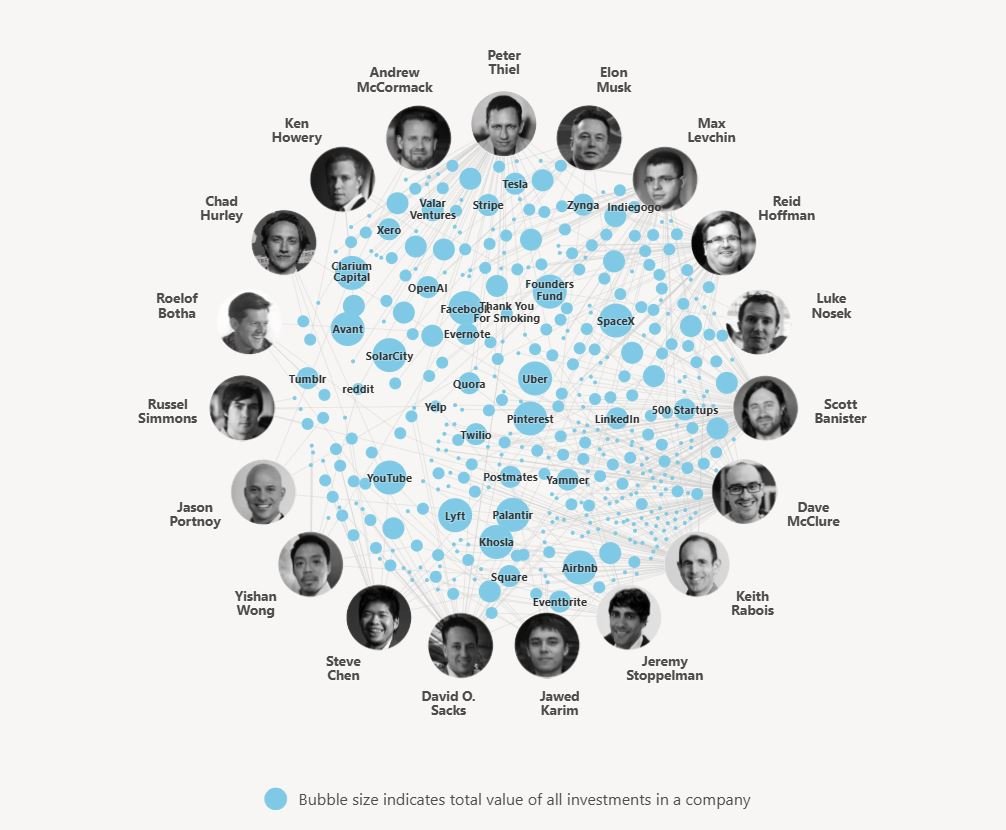The PayPal Mafia: Lessons from Tech’s Most Influential Network
The PayPal Mafia: Lessons from Tech’s Most Influential Network
The PayPal Mafia represents one of the most remarkable examples of entrepreneurial success in recent history. This group of former PayPal employees went on to build or lead transformative companies like Tesla, LinkedIn, YouTube, Yelp, and Palantir. What made this team so exceptional, and what can you apply to your own career or business pursuits?
Who Were the PayPal Mafia?
The PayPal Mafia consists of some of the most influential entrepreneurs and executives in modern tech. Here’s a closer look at their contributions:
Elon Musk: Co-founder of PayPal who used his experience to launch Tesla, SpaceX, Neuralink, and The Boring Company. He redefined industries by tackling enormous challenges in electric vehicles, space exploration, and brain-computer interfaces.
Peter Thiel: PayPal’s first CEO and co-founder of Palantir Technologies. He also became an early investor in Facebook, turning a $500,000 investment into over $1 billion. Thiel’s focus on contrarian thinking has made him one of Silicon Valley’s most sought-after venture capitalists.
Reid Hoffman: PayPal COO and co-founder of LinkedIn, the world’s largest professional networking platform. Hoffman’s ability to scale networks has influenced countless tech businesses.
Max Levchin: PayPal co-founder who went on to create Affirm, a leading player in the fintech space, and contributed to Yelp as an early investor. His focus on problem-solving has driven his continued success.
Steve Chen, Chad Hurley, and Jawed Karim: This trio of PayPal engineers founded YouTube, revolutionizing how video content is consumed globally. Google acquired YouTube in 2006 for $1.65 billion.
Jeremy Stoppelman: Co-founder of Yelp, a platform that transformed how businesses and customers interact through reviews. Yelp continues to influence local commerce worldwide.
Roelof Botha: PayPal’s CFO turned venture capitalist at Sequoia Capital. Botha played a key role in funding companies like YouTube, Instagram, and Square.
Each member’s success was rooted in shared principles: a relentless drive for innovation, a willingness to collaborate, and an ability to adapt to uncertainty.
Lessons from Their Success
Build a Culture That Demands Excellence
At PayPal, the team cultivated a culture where only the best ideas survived. Feedback was direct and often brutal, but it pushed everyone to improve. As Reid Hoffman, co-founder of LinkedIn, once noted, “You have to argue like you’re right and listen like you’re wrong.” When was the last time you encouraged honest, constructive disagreement in your own organization? Do you create an environment where innovation can thrive, or do you shy away from uncomfortable conversations?
Choose People Over Perfect Plans
PayPal's early days were chaotic. Its business model shifted multiple times, yet the founders surrounded themselves with brilliant, adaptable individuals who could pivot quickly. Elon Musk, Peter Thiel, and Max Levchin each brought unique strengths but shared a common mindset: focus on solving problems instead of waiting for perfect conditions. Who are the people in your circle who challenge you to think bigger? Are you investing in relationships with driven, like-minded individuals who share your values?
Take Calculated Risks
PayPal wasn’t an overnight success. In its infancy, the company faced massive fraud problems and skepticism from users about online payments. Instead of playing it safe, the team embraced the challenge. They developed advanced security systems and leaned into solving customer pain points. PayPal’s solution became the industry standard, and their persistence paid off. What challenges are you currently avoiding? How might taking a bold, calculated risk position you ahead of your competitors?
Leverage Your Network
When PayPal alumni left the company, they didn’t go their separate ways. They continued collaborating, investing in each other’s ventures, and sharing resources. Their network became a launchpad for some of the biggest companies in tech. Who in your professional circle could you partner with today? Are you actively nurturing relationships that could spark future opportunities?
Stay Relentlessly Curious
Curiosity drives growth, and the PayPal Mafia exemplifies this trait. From exploring new industries to learning from their failures, they never stopped asking, “What’s next?” Elon Musk famously pursued electric vehicles and space exploration, two areas he knew little about at the start. Are you dedicating time to learn new skills or explore unfamiliar industries that could broaden your perspective?
Actionable Takeaways
Foster a feedback culture: Create systems where open dialogue leads to stronger outcomes.
Surround yourself with excellence: Prioritize relationships with people who inspire and challenge you.
Confront big problems: Seek out the hard challenges that others shy away from.
Invest in your network: Support your peers and seek collaborative opportunities.
Stay curious: Commit to lifelong learning and embrace the unknown.
The PayPal Mafia’s success wasn’t accidental. It came from bold decisions, relentless execution, and a shared commitment to pushing boundaries. Which of these lessons will you apply today? What steps will you take to build your own version of a transformative network?

